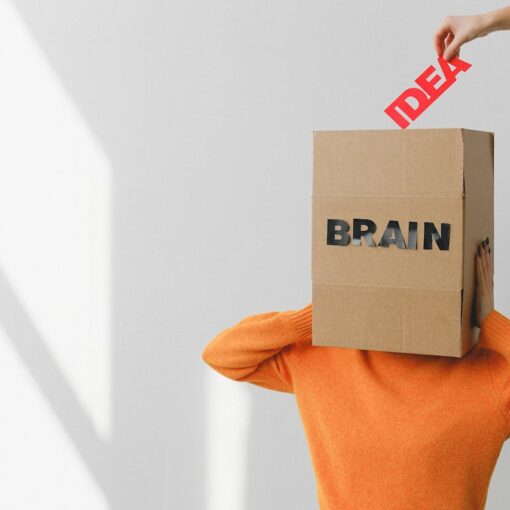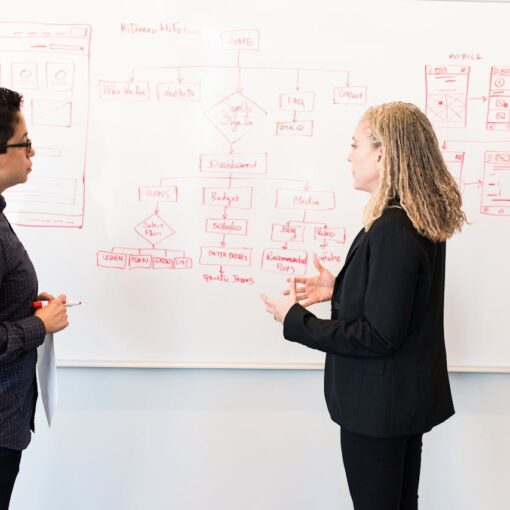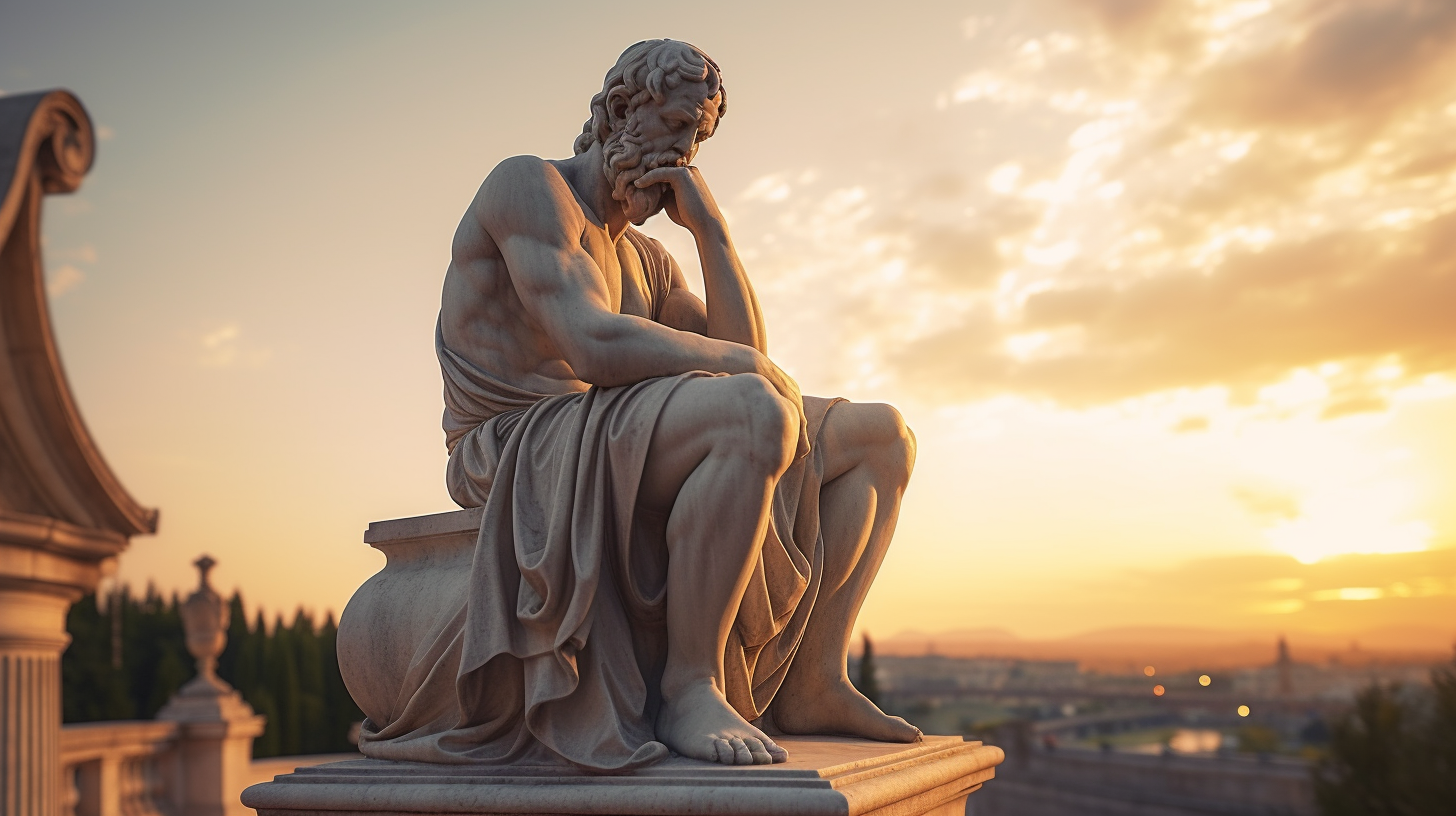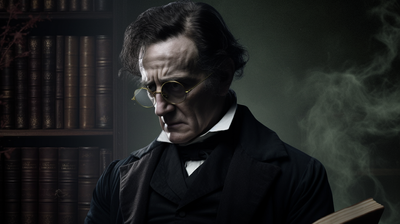
- Search Search Search …
- Search Search …

Philosophy Behind Critical Thinking: A Concise Overview

The philosophy behind critical thinking delves into the deeper understanding of what it means to think critically and to develop the ability to reason, analyze, and evaluate information in a structured and systematic manner. Critical thinking has intricate connections with philosophy, mainly because it originated from ancient philosophical teachings. At its core, the concept of critical thinking is rooted in the Socratic method of questioning, which emphasizes the importance of inquiry and rational thinking as a means to achieve knowledge.

Understanding critical thinking necessitates exploring the various philosophical groundings, which delves into epistemology, the branch of philosophy that deals with knowledge, truth, and belief. Epistemological theories help elucidate different approaches to critical thinking , such as the psychological approach, focusing on cognitive processes, and the cultural and social context approach, emphasizing the importance of context in shaping critical thought. In the realm of education, the role of critical thinking cannot be understated, as it is a vital component of teaching and learning, shaping the way individuals process and interpret information and develop intellectually.
Key Takeaways
- Critical thinking is deeply rooted in ancient philosophical teachings, particularly the Socratic method of questioning.
- Different philosophical groundings provide varying approaches to critical thinking, such as psychological and cultural/social context approaches.
- The importance of critical thinking in education is paramount, as it shapes how individuals process, interpret, and develop intellectually.
Understanding Critical Thinking
Definition and process.
Critical thinking is the ability to think clearly and rationally about what to do or what to believe. It involves engaging in reflective and independent thinking . To understand the logical connections between ideas, one needs to identify, construct, and evaluate arguments.
Logic, Reason, Rationality
Logic, reason, and rationality are essential components of critical thinking. Logic refers to the systematic approach to reasoning and validating claims through principles and rules. Reasoning, on the other hand, is the process of drawing conclusions based on logic, evidence, and assumptions. Rationality encompasses the use of logic and reason to make well-informed decisions, judgments, and evaluations.
Strategies and Patterns
To develop critical thinking skills , individuals must employ various strategies and recognize patterns in their thinking. Some common strategies include:
- Analysis : Breaking down complex problems, data, or texts into simpler parts to understand what they mean and explain the implications to others.
- Interpretation : Making sense of information and grasping its relevance in a given context.
- Inference : Drawing reasonable conclusions based on available evidence and logic.
- Evaluation : Assessing the credibility and validity of claims, arguments, or sources of information.
Recognizing patterns in thinking involves identifying common errors, biases, and other factors that might hinder critical thinking and refining one’s thought process accordingly.
Justification and Argumentation
Justification and argumentation play a crucial role in critical thinking . Justification refers to providing reasons or evidence in support of a claim, while argumentation involves constructing and evaluating arguments . Both justification and argumentation require logical reasoning, analysis of evidence, and clear communication of ideas.
Clarity and Reflection
Clarity is essential for effective critical thinking. This entails expressing ideas and arguments in a clear, concise, and organized manner. Furthermore, critical thinkers must also engage in reflection — the process of examining their own thought processes, assumptions, and biases. Reflecting on one’s beliefs and values helps individuals refine their thinking and develop a more nuanced understanding of the world around them.
In conclusion, understanding critical thinking involves exploring its definition, process, and key components, such as logic, reason, rationality, strategies, patterns, justification, argumentation, clarity, and reflection. By cultivating a strong foundation in these areas, individuals can develop their ability to think critically and make well-informed decisions in various aspects of life.
Psychological Approach to Critical Thinking

Cognition and Pattern Recognition
The psychological approach to critical thinking emphasizes the role of cognition and pattern recognition in the process. Cognitive psychologists recognize that our minds have a natural ability to identify patterns and relationships in the information we encounter. This involves categorizing, comparing, and evaluating various pieces of information. By developing cognitive skills, individuals can more effectively analyze and evaluate complex arguments, ultimately fostering their critical thinking abilities.
Bias and Judgments
Another aspect of the psychological approach to critical thinking is the examination of biases and judgments. Bias refers to the systematic errors or distortions in human reasoning that can arise from emotions, beliefs, or external factors. When individuals possess a strong bias, it can impede their ability to think critically and accurately evaluate information. By being aware of these biases and actively seeking to minimize their influence, one can improve their critical thinking skills and make more accurate judgments.
Problem-Solving and Decision-Making
Finally, the psychological approach to critical thinking also emphasizes the importance of problem-solving and decision-making abilities. Effective problem-solving is accomplished by identifying the problem, gathering and evaluating relevant information, and formulating potential solutions. Strong decision-making skills involve comparing potential solutions and selecting the most effective one based on logical reasoning and evidence.
In conclusion, the psychological approach to critical thinking focuses on fostering cognitive skills, identifying and minimizing biases, and developing strong problem-solving and decision-making abilities. By enhancing these aspects, individuals can become more effective critical thinkers and make well-informed decisions throughout their lives.
Philosophical Groundings
Roots of critical thought.
The roots of critical thought can be traced back to ancient Greek philosophy , particularly the ideas developed by Socrates, Plato, and Aristotle. In their teachings, these philosophers emphasized the importance of questioning and examining beliefs, seeking evidence, and evaluating arguments logically. Through these pursuits, they laid a strong foundation for the development of critical thinking in modern times.
Major Philosophers and Approaches
Several major philosophers and their approaches have significantly contributed to the evolution of critical thinking. Among them, Socrates’ method of inquiry, known as the Socratic Method, involves continuous questioning and probing for deeper understanding. Plato, a student of Socrates, focused on the power of dialectical reasoning, urging individuals to engage in dialogue and debate to examine their own beliefs and the beliefs of others.
Aristotle contributed to critical thinking by emphasizing the importance of logic and coherent reasoning to gain knowledge. He also explored rhetoric, expounding on its role in persuasive argumentation. In more recent times, figures such as John Dewey and Karl Marx have provided insights into the role of critical thinking in education and social transformation.
Informal Logic and its Importance
Informal logic plays a crucial role in critical thinking as it concerns the principles and methods used to analyze everyday arguments and reasoning beyond the scope of formal logic. It complements formal logic, which deals strictly with logical systems and symbols. Informal logic helps individuals assess the validity, soundness, and context of arguments encountered in daily life. By honing their skills in informal logic, individuals can become better critical thinkers and more adept at navigating complex situations and decision-making processes.
Through the teachings of philosophers like Plato, Aristotle, and Socrates, as well as the application of informal logic and logical reasoning, the concept of critical thinking has evolved into an essential aspect of learning and decision-making in modern society. Embracing these foundational elements can empower individuals to develop the skills necessary to think critically and effectively in various aspects of life.
Critical Thinking in Cultural and Social Context
Race and gender perspectives.
Critical thinking is a universal skill that transcends cultural and social boundaries. However, it is essential to consider the impact of race and gender on the development and exercise of critical thinking skills . People from marginalized groups may experience unique challenges and perspectives that influence their critical thinking abilities. For example, in a cross-cultural study examining critical thinking among nurse scholars in Thailand and the United States, distinctive perspectives on critical thinking were observed due to cultural differences. Understanding the intersections of race, gender, and critical thinking can help create more inclusive education and workplace environments that foster critical thinking for everyone.
Critical Thinking in a Democratic Society
In a democratic society, critical thinking plays a crucial role in informed decision-making, civic engagement, and open discussion. The healthy functioning of a democracy relies on the citizens’ capacity to discern reliable information, assess arguments, and make rational choices. According to the Stanford Encyclopedia of Philosophy , critical thinking includes abilities and dispositions that lead individuals to think critically when appropriate. Developing these skills allows members of democratic societies to engage in productive debates, evaluate policies, and hold leaders accountable.
Culture, Society, and Critical Thinking
Cultural backgrounds and societal norms can significantly impact how individuals approach critical thinking. Different cultures may emphasize various ways of thinking, problem-solving, and expressing ideas. As a result, critical thinking can manifest differently across cultures, often influenced by aspects such as language, traditions, and values. A study discussing critical thinking in its historical and social contexts highlights the importance of considering cultural influences when evaluating and teaching critical thinking.
In summary, critical thinking is an essential skill across various cultural, racial, gender, and social contexts. By acknowledging these differences and understanding the significance of critical thinking in democratic societies, educators and societies can promote a more inclusive environment for cultivating critical thinking skills .
Role of Critical Thinking in Education
Aims of education.
The primary aim of education is to foster the development of individuals’ cognitive capabilities, empowering them to grow into confident, knowledgeable and discerning adults. Critical thinking plays a significant role in education as it helps students acquire and apply knowledge more effectively, by analyzing, evaluating, and synthesizing information from diverse sources in a systematic manner, leading to more accurate and informed decisions.
In addition, critical thinking allows students to question existing knowledge and challenge conventional wisdom, thus avoiding indoctrination and promoting intellectual independence. This helps in nurturing open-minded and critical citizens who can contribute positively to society.
Skills Development
Critical thinking involves a variety of skills and abilities that are essential for students’ personal and professional success. These include problem-solving, decision making, logical reasoning, and effective communication, among others. By teaching these skills in the classroom, educators enable learners to confront complex issues and dilemmas with confidence and clarity, fostering their cognitive, social, and emotional growth.
Classroom activities focused on critical thinking are essential to help students develop a systematic approach to problem-solving and sharpen their analytical skills. Practical tasks, like debates, group discussions, case studies, or role plays, can be employed to engage students in active learning, thus enhancing their critical thought processes.
Standardized Tests vs. Critical Thought
While standardized tests have dominated the contemporary education system, there is growing concern regarding their effectiveness in promoting critical thinking. Some argue that standardized tests prioritize the acquisition of specific knowledge over the development of essential skills and abilities, leading to an education that is more focused on rote memorization than meaningful learning.
However, introducing critical thinking elements in the curriculum or classroom activities does not require a complete removal of standardized tests. Educators can strike a balance between knowledge acquisition and skill development by incorporating critical thinking exercises in conjunction with traditional assessments. In doing so, students can better prepare for life beyond the classroom, developing a mindset that values continuous learning, reflection, and intellectual curiosity.
Importance of Open-Mindedness and Skepticism
Being skeptical vs. being cynical.
It is essential to understand the difference between being skeptical and being cynical. Skepticism in critical thinking involves questioning assertions and assumptions, seeking evidence, and evaluating arguments from a neutral, objective viewpoint. On the other hand, cynicism is a distrustful attitude, where one assumes negative intentions or outcomes.
A critical thinker should strive to be skeptical rather than cynical. Approaching situations with skepticism allows for the exploration of different viewpoints and the willingness to change one’s mind based on new evidence, while cynicism can lead to the dismissal of valid arguments due to preconceived negative beliefs.

Traits of an Open-Minded Thinker
Open-mindedness is an essential trait for critical thinkers. Some key characteristics of an open-minded thinker include:
- Cognitive flexibility : Adapting to and considering new information or perspectives.
- Tolerance for ambiguity : Accepting the possibility that there may be multiple valid solutions or interpretations.
- Willingness to change : Being open to revising beliefs and opinions when presented with strong evidence or arguments.
Being open-minded allows critical thinkers to explore various perspectives and ideas and to evaluate them fairly. This inclination towards cognitive flexibility helps in avoiding rigidity in thinking, enabling better decision-making and problem-solving.
Role of Curiosity and Empathy in Critical Thinking
Curiosity and empathy play crucial roles in effective critical thinking. A curious individual seeks knowledge and understanding, thus asking relevant questions and engaging in Socratic questioning. Socratic questioning is a method of probing and analyzing through questions to encourage self-reflection and deeper understanding. This technique fosters critical thinking by challenging assumptions and providing opportunities to explore diverse viewpoints.
Empathy, on the other hand, permits critical thinkers to comprehend and appreciate different perspectives by placing themselves in others’ shoes. An empathetic approach contributes to open-mindedness and cultivates a sense of humility, recognizing that individuals may hold contrasting opinions based on personal experiences or beliefs. The combination of curiosity and empathy enhances critical thinking by promoting a more inclusive and nuanced understanding of complex issues and scenarios.
In the realm of philosophy, critical thinking holds a prominent position. It is a process that revolves around using and assessing reasons to evaluate statements, assumptions, and arguments in ordinary situations. The ultimate goal of critical thinking is to foster good beliefs, aligning them with goals such as truth, usefulness, and rationality 1 .
John Dewey played a crucial role in shaping the concept of critical thinking by introducing it as an educational goal 2 . He connected it with a scientific attitude of mind, highlighting the importance of reflective thought in the process of critical thinking. This approach enhances one’s ability to understand and analyze situations, leading to informed and rational decisions.
Critical thinking equips individuals with the tools necessary to think carefully with clarity, depth, precision, accuracy, and logic 3 . It has applications across various domains, such as science, where great scientists like Albert Einstein have benefited from critical thinking skills to discover groundbreaking concepts.
In conclusion, the philosophy behind critical thinking emphasizes the importance of cultivating a rational and reflective mindset. As an essential skill for problem-solving and decision-making, critical thinking plays a vital role in developing well-rounded individuals ready to navigate the complexities of the world.
- Internet Encyclopedia of Philosophy ↩
- Stanford Encyclopedia of Philosophy ↩
- SlideShare ↩
You may also like

SWOT Analysis for Personal and Professional Growth: Elevate Your Potential
Navigating personal and professional growth can be challenging without the right tools. A SWOT Analysis is a strategic method that offers clarity. […]

How to Prepare for a Critical Thinking Test: Effective Strategies and Tips
Preparing for a critical thinking test can be challenging, as it requires you to use your intellectual skills to critically analyze evidence […]

What is Decision Making Capacity: Understanding Competence in Choices
Decision-making capacity is a fundamental concept in healthcare, law, and ethics. It refers to an individual’s ability to make informed choices regarding […]

Mind Mapping for Critical Thinking: Boost Analytical Skills Effortlessly
Mind mapping is an effective tool for improving critical thinking. Developed by Tony Buzan in the 1960s, mind mapping helps organize thoughts […]

The Role of Philosophy in Critical Thinking and Problem-Solving
Philosophy guides critical thinking and problem-solving, encouraging rigorous analysis, logical reasoning, and the exploration of diverse perspectives to unravel complex issues and arrive at well-grounded conclusions.

In an era dominated by fleeting attention spans and an overabundance of information, cultivating critical thinking and problem-solving skills cannot be overstated. However, in our haste to seek immediate solutions, we often neglect the indispensable tool that has guided human thought for centuries: philosophy. Today, I endeavor to challenge conventional wisdom and explore philosophy's profound role in shaping our intellectual landscape, enhancing our ability to think critically, and offering invaluable insights into problem-solving. By delving into the annals of history, employing sharp wit, and embracing intellectual rigor, we can reestablish philosophy as an indispensable discipline for a discerning mind.

The Antiquity of Philosophical Inquiry:
We must first acknowledge its historical significance to appreciate philosophy's role in critical thinking and problem-solving. Philosophy, birthed in ancient Greece, was the bedrock upon which Western thought was built. The likes of Socrates, Plato, and Aristotle infused the discipline with a relentless pursuit of truth, utilizing critical thinking to question the status quo and expose fallacies. Moreover, their philosophical methodologies were the foundation for other knowledge domains, including science, politics, and ethics.
The Socratic Method: Unveiling Truth Through Inquiry:
At the heart of philosophy lies the Socratic method—a powerful tool designed to challenge assumptions, question preconceived notions, and foster critical thinking. Socrates, the luminary who met an untimely demise for his audacity, demonstrated the profound impact of inquiry in unravelling truth. He dismantled conventional wisdom by engaging in rigorous dialogue, exposing its underlying contradictions and weaknesses. Through this dialectical process, critical thinking flourished, paving the way for greater intellectual depth and clarity.
Philosophy as the Progenitor of Scientific Inquiry:
Contrary to popular belief, the relationship between philosophy and science is not one of disjointed adversaries. Instead, philosophy provided the fertile ground from which the scientific method emerged. Renowned thinkers such as Francis Bacon and René Descartes, both philosophers and scientists, recognized the importance of critical thinking in pursuing empirical knowledge. Their skepticism and commitment to rational inquiry laid the groundwork for the systematic and evidence-based approach that underpins scientific discoveries today.

Ethical Dilemmas and Philosophical Solutions:
In the realm of ethics, philosophy remains an indispensable guide for navigating complex moral landscapes. As dilemmas arise and societal norms evolve, critical thinking fortified by philosophical insights allows us to evaluate competing moral theories and navigate the intricacies of moral decision-making. From utilitarianism to deontology, philosophy offers a pantheon of ethical frameworks that aid in solving moral problems and foster a more nuanced understanding of human behavior.
Problem-Solving and the Philosophy of Logic:
Critical thinking, at its core, requires proficiency in logical reasoning. With its rigorous study of logic, philosophy equips individuals with the tools to dissect and analyze problems methodically. By employing deductive and inductive reasoning, philosophy trains the mind to identify fallacies, challenge assumptions, and construct persuasive arguments. As Bertrand Russell once proclaimed, "Logic and mathematics are nothing if not an exercise in clarity."
The Perils of a Philosophy-less Society:
In a world that exalts instant gratification and facile solutions, the marginalization of philosophy undermines our intellectual development. Without the discipline of critical thinking fostered by philosophy, we risk becoming passive recipients of information, susceptible to manipulation, and unable to discern the truth from falsehood. The erosion of philosophy from our educational institutions and public discourse has dire consequences for the vitality of our democracy and the pursuit of a well-informed citizenry.

Conclusion:
Philosophy, often maligned as an esoteric pursuit detached from practicality, must reclaim its rightful place as a linchpin of critical thinking and problem-solving. We can harness philosophy's transformative potential by embracing its historical lineage, leveraging the power of the Socratic method, recognizing its contributions to scientific inquiry and ethical deliberation, and appreciating its emphasis on logical reasoning. Let us rekindle the spirit of intellectual rigour, for in doing so, we equip ourselves with the indispensable tools needed to navigate an ever-complex world, challenge dogmas, and unravel the enigma of truth. As philosopher Ludwig Wittgenstein so aptly observed, "Philosophy is a battle against the bewitchment of our intelligence using language."

Plato Re-Imagined
This course offers 32 comprehensive lectures exploring most of Plato's dialogues. These lectures guide students toward a consilient understanding of the divine—a concept that harmonizes knowledge across disciplines and resonates with secular and religious leaders. As a bonus, Lecture #33 focuses on consilience, demonstrating how different fields of knowledge can converge to form a unified understanding.
You might also like

The Moral Responsibility in Mary Shelley's 'Frankenstein'

The Evolution of Consumer Behavior: From Impulse Buying to Conscious Consumption

The Wisdom of Ancient Greece: Timeless Insights for Modern Life

The Stoic Ideal: Navigating Life's Challenges with Inner Resilience

The Philosophy of Happiness: Ancient and Contemporary Approaches
Popular tags.

IMAGES
VIDEO
COMMENTS
Some studies have found evidence that students in philosophy courses show greater improvements in critical thinking skills than do students in non-philosophy courses (Ross and Semb Reference Ross and Semb 1981).
things that a conscientious student would generally do when enrolled in a philosophy subject at a typical Anglo-American university) is especially effective in producing gains, in critical thinking skills, where gains are interpreted as detectably higher levels of skill after studying than before.
Uncover the transformative role of philosophy in developing critical thinking skills. Explore the profound impact of philosophical study on cognitive growth.
As it turns out, they do: Students’ critical-thinking skills do improve in college. The difference is comparable to a student whose critical-thinking skills start at the 50th percentile and, after four years in college, move up to the 72nd.
Critical thinking is deeply rooted in ancient philosophical teachings, particularly the Socratic method of questioning. Different philosophical groundings provide varying approaches to critical thinking, such as psychological and cultural/social context approaches.
Philosophy guides critical thinking and problem-solving, encouraging rigorous analysis, logical reasoning, and the exploration of diverse perspectives to unravel complex issues and arrive at well-grounded conclusions.